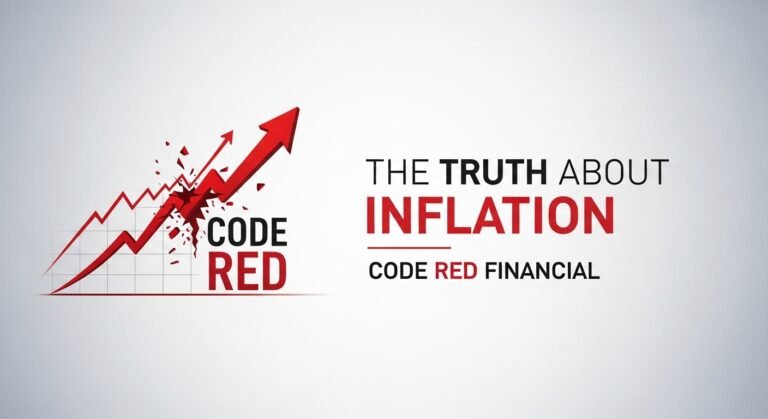
If you’ve ever found yourself lying awake at night and wondering whether you should throw every spare dollar at your debts or stash it away for a rainy day, you’re not alone. This is one of the most personal and stressful money dilemmas out there. The truth? There’s no one-size-fits-all answer—but there is a path to peace of mind that’s just right for you.
Let’s walk through how you can find your balance, reduce stress, and set yourself up for lasting financial security.
Why This Decision Feels So Overwhelming
Debt—whether it’s credit cards, student loans, or your mortgage—can feel like a heavy weight. Those interest rates? They add up fast, making it easy to feel trapped. But on the flip side, saving money is your ticket to freedom: an emergency fund for life’s curveballs, a retirement plan for your future self, and a cushion that lets you sleep a little easier.
The real challenge isn’t just about numbers. It’s about building a life where you feel secure, stable, and able to pursue your dreams.
Step 1: Get Real About Your Finances
Before you can decide where to focus, you need a clear picture of your financial landscape.
Calculate Your Net Worth
- List your assets: Cash, investments, home value, and anything else you own.
- List your liabilities: All debts—credit cards, loans, mortgages.
- Net worth = assets – liabilities
If your net worth is negative, it may be time to focus on paying down debt. If it’s positive, you might have more flexibility to do both.
Track Your Income and Expenses
- Write down every source of income: Salary, side gigs, bonuses.
- List all monthly expenses: Rent, bills, groceries, transportation, fun money.
- Compare: Are you spending more than you earn? If so, look for areas to cut back or ways to boost your income.
Analyze Your Debt
- Make a debt list: Note every balance and its interest rate.
- Prioritize high-interest debt: Credit cards and personal loans can snowball fast—these usually need your attention first.
Review Your Savings
- Check your emergency fund: Ideally, you want 3–6 months of living expenses set aside.
- Review retirement and other savings: Are you on track for your goals?
If your emergency fund is lacking, consider building it up before aggressively tackling debt—especially if your debt isn’t spiraling out of control.
The Pros and Cons: Debt Repayment vs. Saving
Paying Off Debt
Benefits:
- Save on interest: The less you owe, the less you pay in the long run.
- Boost your credit score: Lower balances and on-time payments work wonders.
- Reduce stress: Less debt means fewer worries.
- More money later: Once debt is gone, you can redirect payments to savings or investments.
Drawbacks:
- Missed investment growth: You might miss out on market gains if you focus only on debt.
- Less cash on hand: Aggressive repayment can leave you cash-strapped for emergencies.
- Potential burnout: Extreme cutbacks can be tough to sustain.
Building Savings
Benefits:
- Emergency safety net: Avoid new debt when life happens.
- Peace of mind: Knowing you have a cushion is priceless.
- Investment growth: Smart investing can sometimes outpace debt interest.
- Flexibility: More options for your future.
Drawbacks:
- Interest adds up: Letting high-interest debt linger can cost you more over time.
- Temptation to spend: Easy-access savings can be tempting if you don’t have a plan.
What Should You Consider?
- Interest rates vs. investment returns: If your debt interest is higher than your potential investment gains, focus on debt.
- Your goals: Need a house soon? Want to retire early? Let your dreams guide your priorities.
- Risk tolerance: If debt keeps you up at night, prioritize paying it off. If you’re comfortable with some risk, balance both.
- Life circumstances: Job security, family needs, and health all play a role.
How to Find Your Balance
- Set clear goals: What matters most to you right now and in the future?
- Create a budget: Try the 50/30/20 rule as a starting point—50% needs, 30% wants, 20% savings and debt.
- Split windfalls: Got a bonus or tax refund? Divide it between debt and savings.
- Review regularly: Life changes—so should your plan.
Your Road to Financial Freedom
As a reminder, this journey is personal. The right answer depends on your unique situation, goals, and what helps you sleep at night. By taking an honest look at your finances, weighing the pros and cons, and staying flexible, you’ll find the balance that leads to true financial well-being—for you and your family.
Disclaimer: This article is for informational purposes only and should not be considered financial or investment advice. Investing in any of the mentioned passive income streams involves risk, and you could lose money. Before making any investment decisions, it is essential to conduct your own thorough research and consider consulting with a qualified financial advisor who can assess your individual financial situation, risk tolerance, and goals. The potential returns discussed are illustrative and not guaranteed. Market conditions, regulations, and other factors can significantly impact the performance of any investment or business venture.







